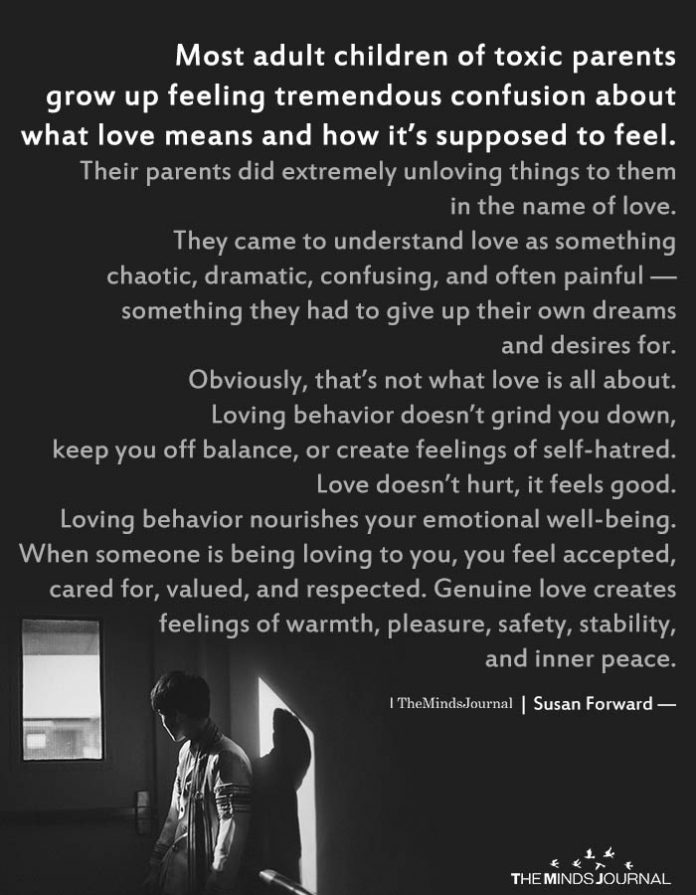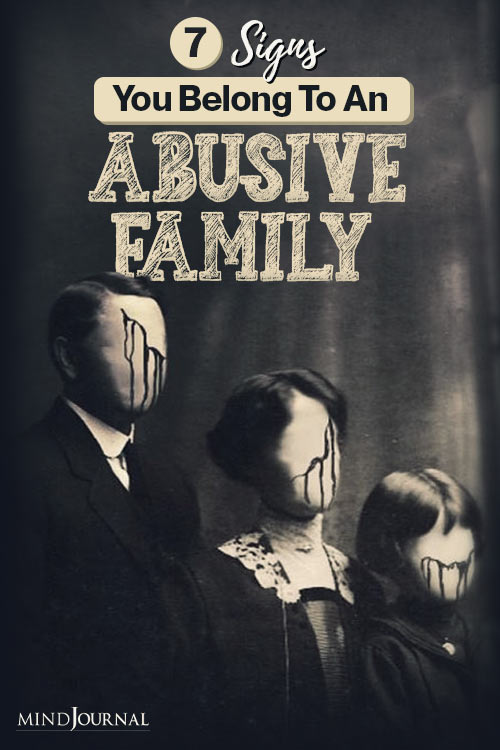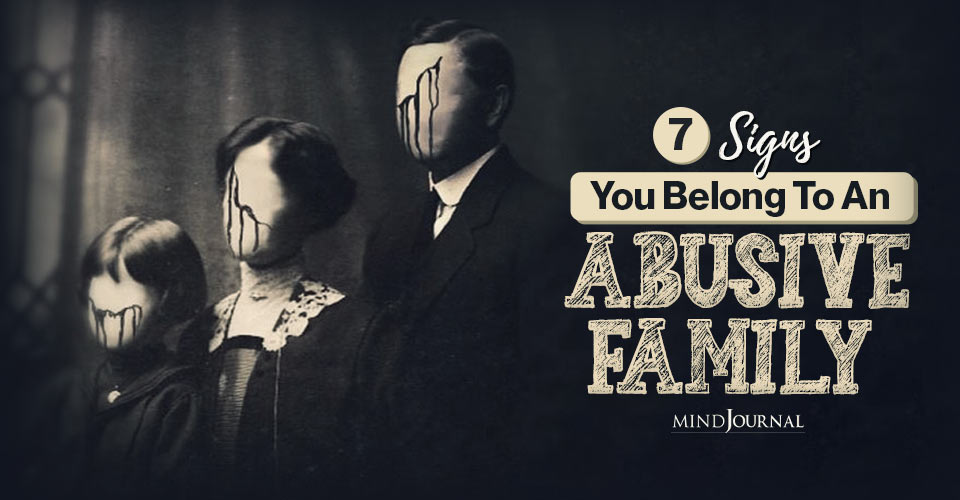“Family is supposed to be our safe haven. Very often, it’s the place we find the deepest heartache.” – Lyanla Vansant
Belonging to a happy and stable family is a dream for many, but not everyone has the good fortune of being born into a family like that. Instead, they are cursed with an abusive toxic family with dysfunctional family roles serving as the icing on the cake. If you belong to an abusive family, you know exactly what I am talking about.
A happy, normal and healthy family gives you the opportunity to grow, and thrive with the right guidance. Your parents love you, support you and accept you for who you are. But in an abusive toxic family, it’s the exact opposite. Your parents control you, intimidate you, emotionally, physically, and mentally hurt you, and most importantly, make your home feel like hell.
And not just this, in almost every dysfunctional and emotionally abusive family every member plays a different role which keeps the vicious cycle going, keeping alive the tradition of intergenerational trauma. So what are the signs of an abusive family?
Related: 8 Characteristics Shared By Dysfunctional Families
What Are The Dysfunctional Family Roles?
– The Hero: The Hero is the overachiever in the family, who takes on the responsibility of making sure that the family always looks good and normal on the outside. They try their best to mask their family’s toxicity with their unending achievements.
– The Caretaker: Also known as the Enabler, they take on the responsibility of keeping everyone happy, by completely ignoring the real issues plaguing the family. They try to carry the whole family on their shoulders and find it hard to hold people accountable for their actions.
– The Scapegoat: Just like the name suggests, they are always blamed for everything that goes wrong in the family, even when they are not guilty of it. Scapegoats are always made to feel rejected, unloved, unwanted and a burden on the family.
– The Mascot: The Mascot always tries to lighten the situation by joking and goofing around. They know the reality of their family, but they choose to ignore all the problems by using humour and goofiness as defence mechanisms. Mascots always distract themselves and others, rather than face the problems head-on.
– The Lost Child: The Lost Child is the one who always tries to blend in the background. This is their way of protecting themselves from the negativity running rampant around them. They avoid interacting with their family members, which leads to social isolation, awkwardness, and low self-esteem in the long run.
7 Major Signs You Belong To An Abusive Toxic Family
1. Your family members are violent with each other.
Violence is not always physical, it can be emotional, mental, sexual, and psychological too. If your family is always hurting one another in some way or the other, then chances are you belong to an abusive family.
Constant violence, no matter which form it takes, leads to destructive behaviour, trauma, low self-worth, fear, unstable romantic relationships in your adulthood, and mental health challenges.
Related: 5 Signs You Are The Child Of A Toxic Parent
2. You are held accountable for your family’s abusive and toxic behaviour.
Even if you are the victim, and you play no role in the toxicity that is present in your family, somehow they will hold you responsible for it all (The Scapegoat). Be it your parents or siblings, it’s impossible for them to realise and accept their faults.
Did you feel hurt and insulted because they were unkind to you? Well, it’s not their fault you are ‘too sensitive’. Did they ridicule you in front of everyone, and you felt bad? Well, you don’t have any ‘sense of humour’? Did they hit you so hard that you fell down and broke your hand? Well, you must have made them ‘very, very angry’ and you ‘deserved it’.

3. Your boundaries are never respected.
Abusive toxic family members do not understand the concept of boundaries, especially personal boundaries. They don’t care what you feel uncomfortable about (The Lost Child) and only focus on what they expect from you, and what they need you to do.
Every person is entitled to their boundaries, but when you belong to a toxic family, you can say goodbye to this for good. Your parents will be overly involved in your life, go through your personal stuff, read your journals, refuse to give you any space, and no matter how much you try to make them understand, they will continue to impose their expectations and opinions on you.
4. You are always pushed to be perfect.
A little bit of perfectionism is a good virtue to have, but when it’s excessive, that’s when it becomes toxic. If your family constantly pushes you and expects you to be a perfectionist, then don’t even think for a second that it’s normal. Perfectionism is a myth, and honestly, also unnecessary.
Failure is a part and parcel of everything, and by constantly pushing yourself to be perfect, you gradually cultivate a fear of failure in yourself (The Hero). This form of rigid perfectionism is nothing but another tool for your abusive family to control you and your life more.
Related: 18 Signs of A Dysfunctional Family and How To Deal
5. You never get any love, empathy and compassion from your family.
Love, empathy, compassion and kindness – these are all alien concepts in an abusive toxic family. Instead of all these, you get ridicule, insensitivity, heartbreak, emotional abuse and pain. Your feelings and emotions will be treated like garbage, and your expectations will be laughed at.
Happiness will seem like a far-off dream. You will have no bond with your parents, rather the relationship between you and your parents will be either parentified (The Caretaker), toxic or co-dependent. There will always be a stark absence of emotional intimacy, respect and trust.
6. You are always judged and criticized.
There’s a reason why you detest family gatherings. Your family judges you and rips into you every chance they get; nothing you do is ever good enough for them. They make you feel like a loser all the time by questioning your job, physical appearance, relationship status, and even downplay your achievements.
It’s okay to be a bit critical sometimes, but your family crosses all limits when it comes to criticizing you. Deep down inside they love insulting you because it makes them feel good about themselves and their own flaws and insecurities.
7. Your family’s truth is always concealed in front of other people.
Dysfunctional and toxic families always try to make sure that the outside world never witnesses the dysfunction. Being superficial and fake is the name of the game here (The Mascot), and abusive toxic family members will go to any lengths to make sure nobody ever gets to know the real deal.
Starting from perfect physical appearances, to rehearsed body language, an outsider will never be able to guess what goes on behind closed doors. You have to pretend to be a happy, perfect family whereas your family is anything but that.
Related: Why It’s Okay To Cut Toxic Family Members Out of Your Life
Having an abusive toxic family is not just emotionally and mentally draining, it’s heartbreaking too. Everyone wants to have a stable and healthy family life, and when you don’t have that, it can feel pretty lonely. However, don’t think you are what your family is. It’s okay if you want to get away from it all and forge your own path because, at the end of the day, your happiness and sanity matters the most.
Want to know more about the signs of an abusive toxic family? Check this video out below!
Frequently Asked Questions (FAQs)
How do I deal with a toxic family member?
The best ways to deal with a toxic family member are by setting boundaries, minimizing contact, standing your ground, speaking up for yourself whenever they try to mess with you, and making sure that you always practise self-love.
How to deal with toxic siblings?
If you are looking to deal with your toxic sibling, then you need to keep a few things in mind – establish emotional boundaries, know who you are by acknowledging your truth, try not to let them get to you, communicate with them openly if possible and don’t normalize their behaviour.
Do toxic people know they are toxic?
Yes, toxic people know very well that they are toxic. It’s just that they don’t care and they deliberately choose not to do anything about it.











Leave a Reply